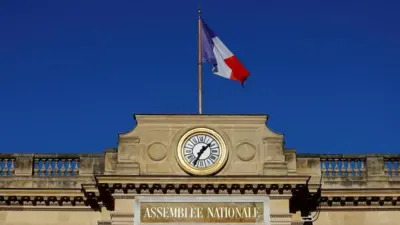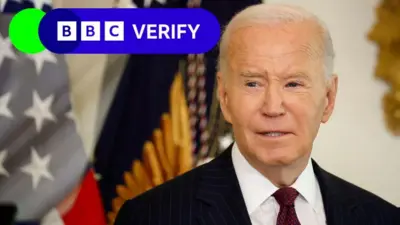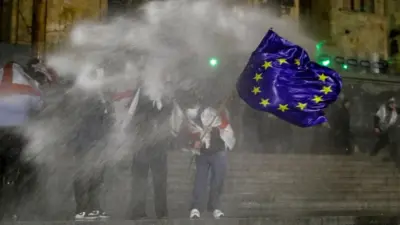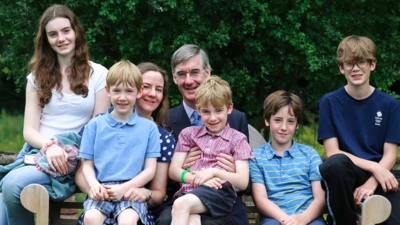We've updated our Privacy and Cookies Policy
We've made some important changes to our Privacy and Cookies Policy and we want you to know what this means for you and your data.
Leveson Inquiry: Facebook 'protected by own users'
Facebook has "an 800 million-strong Neighbourhood Watch system" to protect against people carrying out malicious acts, the Leveson Inquiry has heard.
Facebook director Lord Allan said the strongest protection against people using false identities on the social network was its user community.
Lord Allan said privacy "was at the heart of what we're trying to do".
Top Stories
David-John Collins, of internet search engine Google, told the inquiry it took privacy "extremely seriously".
Top Stories
Lord Allan said Facebook enforced a policy that people must present themselves as themselves.
Specific clauses
He told the inquiry on Thursday that if people came to the site and did not present themselves under their real identity, they would not have a "meaningful experience".
"We have a security team that is constantly looking for the people trying to get around the system. The sort of people carrying out malicious behaviour will use false identities," he said.
"We find the strongest protection is that community of users. We have an 800 million-strong Neighbourhood Watch system."
Lord Allan said Facebook had specific clauses on bullying and harassment, nudity and pornography, violence and hate speech.
When asked about Facebook's approach to privacy, he said Facebook's "raison d'etre" was to give people the ability to share information but also to give them control over what information they shared.
"Privacy is a notion at the heart of what we're trying to do," he said.
Lord Allan said Facebook aimed to turn around complaints of privacy or defamation from the UK within 24 to 48 hours.
Top Stories
'Legal process'
Meanwhile, Mr Collins, a Google vice-president, was asked about an article that quoted Google's former chief executive, Eric Schmidt, of saying "only miscreants worry about net privacy".
Mr Collins told the inquiry that was not representative of Google's privacy principles, which it took "extremely seriously".
Daphne Keller, associate general counsel for Google, said it had a legal team to look at potential cases of breaches of UK defamation law.
She told the inquiry that Google had removed hundreds of URLs in relation to the Max Mosley privacy case.
Mr Collins said Google would comply with UK law in relation to future press regulation.
He said: "For removing results from our search index, it's much better for those users if those judgements have been made by a court or a legal process. The result is not just handed to a search engine but handed to the webmaster and other entry points to the web."
Press regulation
Earlier on Thursday, UK information commissioner Christopher Graham told the inquiry that data protection laws covering illegally obtaining or using personal information were being breached every day.
Mr Graham said efforts to deal with this "real challenge" were being frustrated by the press - but he added he had not seen evidence of breaches by the press since 2006.
He told the inquiry that data abuses were not just about the press but NHS workers, bank clerks and private investigators.
He said there were ongoing investigations into private investigators but he was unable to give more information.
The Information Commissioner's Office (ICO) was facing a problem of not being able to get the courts and society to take personal information going missing from databases seriously, he added.
Mr Graham said self-regulation of the press would survive only if it was credible, and that it was a huge mistake to have serving editors on the Press Complaints Commission (PCC).
Camilla Wright, from celebrity news website Popbitch, told the inquiry that it did not publish stories about people's health or children because they were not entertaining.
Questioned over a story that had been about a pregnant Victoria Beckham, Ms Wright said: "Since then I would be much more careful about making sure a pregnancy was beyond 12 weeks - it was in this case."
She said "it's a moving line" when asked where Popbitch draws the line on stories about celebrities' private lives.
Meanwhile, Jonathan Caplan QC, counsel for Associated Newspapers, which publishes the Daily Mail and Mail on Sunday, confirmed that it would not seek to appeal against a High Court ruling last week that some journalists can remain anonymous when giving evidence to the inquiry.
The Leveson Inquiry was set up by Prime Minister David Cameron in July 2011 amid new revelations of phone hacking at the now-defunct News of the World.
The first phase is examining the practices and ethics of the press. A second phase of the inquiry, after a police investigation into phone hacking at the News of the World is complete, will focus on unlawful conduct by the press and the police's initial hacking investigation.
The inquiry will resume on Monday.
Top Stories
More to explore
Most read
Content is not available








